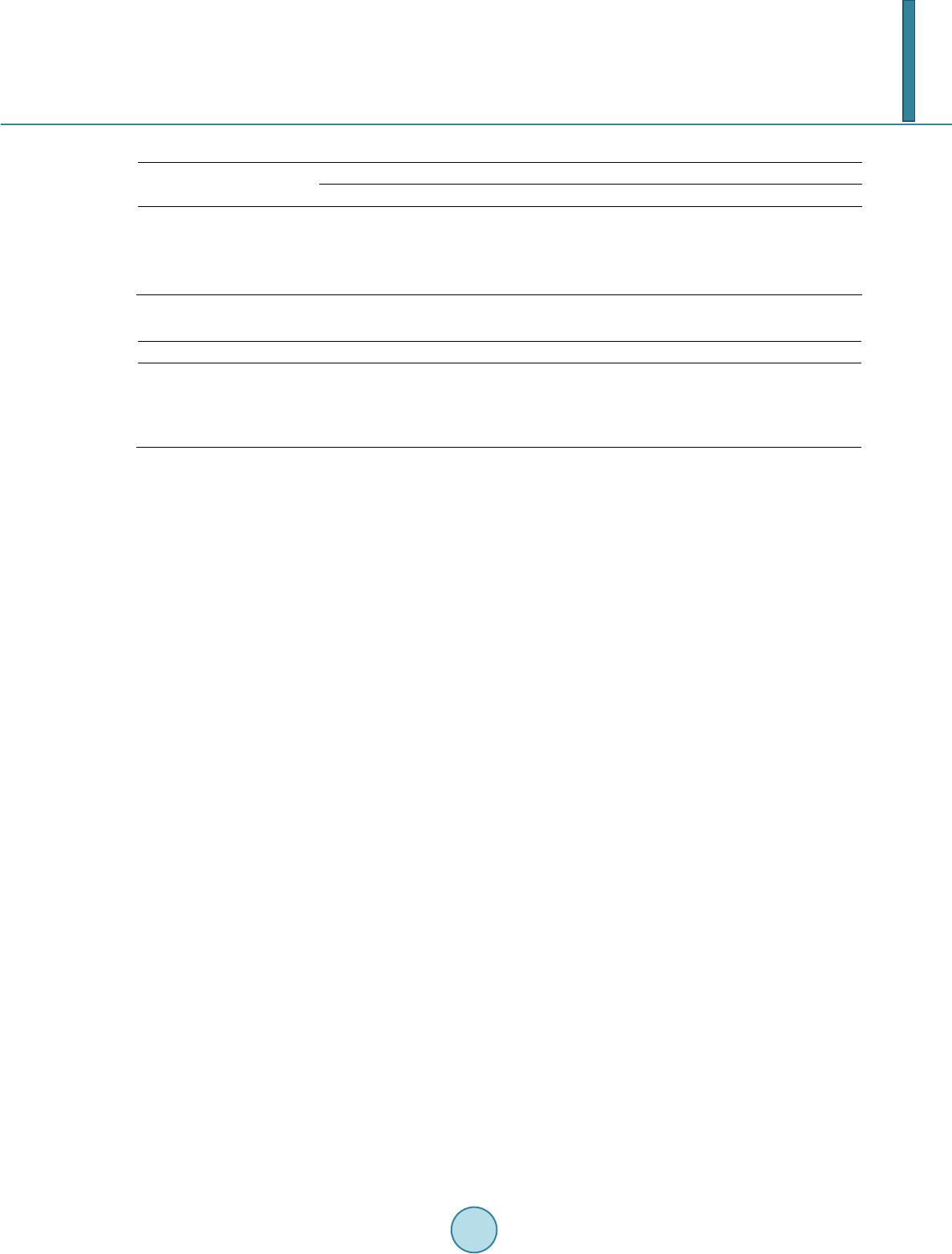 Open Journal of Social Sciences, 2014, 2, 59-65 Published Online May 2014 in SciRes. http://www.scirp.org/journal/jss http://dx.doi.org/10.4236/jss.2014.25013 How to cite this paper: Rezaee, Z., et al. (2014) China Needs Forensic Accounting Education. Open Journal of Social Sciences, 2, 59-65. http://dx.doi.org/10.4236/jss.2014.25013 China Needs Forensic Accounting Education* Zabihollah Rezaee1, Michael Ha2, Daniel Lo3 1Fogelman College of Business & Economics, The University of Memphis, Memp his, USA 2Department of Mathematical Sciences, Xi’an Jiaotong-Liverpool University, Suzhou, China 3International Business School, Xi’an Jiaotong-Liverpool University, Suzhou, China Email: zrerzee@memphis.edu, Mic hael.Ha@xjtlu.edu.cn, Danny.Lo@xjtlu.edu.cn Received March 2014 Abstract White-collar crime causes the most economic harm to the finance world. It is the white collar criminals who steal our pensions, bankrupt companies, destroy thousands of jobs and shatter people’s dreams. Forensic accounting practice has emerged in the areas of litigation support con- sulting, expert witnessing, and fraud investigation. Although forensic accounting practice is viewed as one of the most rewarding and secure career choices, there is a gap between forensic accounting practice and education. Furthermore, the evidence of forensic accounting practice and education in China is rare. Thus, the primary purposes of this paper are to: 1) describe areas of forensic accounting practices in China; 2) examine the demand for and interest in forensic ac- counting practices and education in China: and 3) present the most relevant forensic accounting topics to be integrated into the Chinese business curriculum. To achieve study purposes a survey is conducted to bring insights experts on the demand, relevance, benefits, coverage, and delivery of forensic accounting materials to accounting professionals in China. Results indicate that : 1) the demand for and interest in forensic accounting education and practice in China will continue to increase; and 2) many of the suggested forensic accounting topics should be integrated into busi- ness and accounting curricula in China. The findings can be of great benefit to business colleges and accounting schools as well as accounting students, and employers of accounting graduates in China. Keywords White-Collar Crime, Fraud, Forensic Accounting, Litigatio n 1. Introduction The past three decades has witnessed high profile financial reporting fraud (FRF) cases (e.g . Enron, WorldCom, Parmalat, Satyam, sub-prime mortgages, Olympus). Particularly, during the 2007-2009 global financial crisis the focus on FRF prevention and detection becomes more important as policymakers, regulators, investors and businesses worldwide became concerned about the existence and growth of FRF as well corporate malfeasance and misconduct. As a rapidly growing area within the accounting profession, forensic accounting has emerged to *Zabihollah Rezaee, Ph.D., CPA, CMA, CIA, CFE, CGFM, CSOXP, CGOVP, CGRCP. Michael Ha, Ph.D., LLM, FSA, MAAA, CFA, FRM, PRM. Danny Lo, Ph.D., LLM, CMA, CTA, ICSA, CPM, FIFA.  Z. Rezaee et al. investigate incidents of FRF. In this paper the definition of forensic accounting is adapted from [1] Rezaee (1992) as the practice of rigorous data collection and analysis in the areas of litigation support consulting, expert witnessing, and fraud investigation. Although forensic accounting is viewed as one of the most rewarding and secure career choices, there is still a gap between forensic accounting practice and education. The extant litera- ture in the United States [2] (Rezaee et al., 2007) provides evidence of the importance of forensic accounting education and practice and its integration into the business curriculum. However, the evidence of forensic ac- counting practice and education in China is rare. Thus, the primary purposes of this paper are to: 1) describe areas of forensic accounting practices in China; 2) examine the demand for and interest in forensic accounting practices and education in China: and 3) present the most relevant forensic accounting topics to be integrated into the Chinese business curriculum. To achieve study purposes, a survey is conducted to bring insight for experts on demand, relevance, benefits, coverage, and delivery of forensic accounting materials to accounting professionals in China. We collected data from 129 senior Financial Mathematics students at Xian Jiaotong-Liverpool University located in Suzhou, China. Results reveal that: 1) majority of respondents expect that future demand for and interest in all three areas of fo- rensic accounting will increase with more demand for litigation support: 2) forensic accounting education should be integrated into both undergraduate or graduate accounting program with more preference for graduate foren- sic accounting course; 3) corporate governance plays an important role in preventing and detecting FRF; 4) an- ti-fraud deterrence, prevention and detection education and practice should be integrated into the business curri- culum; and 5) the majority of the 21 (over 90%) suggested forensic accounting topics are considered important for integration into accounting and business curricula. The findings can be of great benefit to business colleges and accounting schools as well as accounting students, and employers of accounting graduates in China. 2. Areas of Forensic Accounting Practices Forensic accounting is viewed as a practice of using technology and science to investigate and expose fraudulent activities and illegal practices involved in the areas of accounting, finance, management, criminology and other places where fraud and illegal acts might take place. Three areas of forensic accounting practices are litigation consulting, expert witnessing, and fraud examination. Litigation consultants assist lawyers in pre-trial activities, disposition, and discovery. Forensic accountants apply their skills, accounting and financial knowledge, expe- rience and training to educate lawyers in the interpretation and understanding of financial information. Litigation consulting services are in demand to determine liability and assess damages in business valuations, insurance claims, malpractice, divorce settlements and embezzlements and theft in the workplace. Forensic accountants also serve as expert witnesses to educate jurors about the technicality of accounting and financial reporting. Although litigation consulting and expert witnessing services are similar in the sense of ap- plying accounting education and practice to assist the characters of the court (lawyers, jurors, judges) to better understand, interpret and use financial data, they have their differences. Forensic accountants serving as expert witnesses must maintain professional skepticism and remain objective and neutral to establish credibility with the opposing cross-examiner. The primary objective of the cross-examiner throughout the court deliberation process is to deter credibility by proving that the forensic accountant has given contradictory statements. Litiga- tion consultants, on the other hand, often work under the supervision of a lawyer and as such have special privi- leges in which specific details and evidence presented do not necessarily have to be revealed. Forensic accountants normally serve as fraud investigators when there is an allegation of fraud. Fraud inves- tigators examine financial data and other evidence to detect and report fraudulent activities. The primary pur- pose of typical financial statement auditing and fraud investigation is to gather competent and sufficient evi- dence to substantiate the reliability, completeness, transparency and accuracy of financial reports. While audi- tors provide reasonable assurance that financial statements are free from material misstatements whether caused by errors of fraud, fraud investigators’ keen focus is to discover and deter fraud by searching for at least one event or transaction that could signal the possibility of fraud. Furthermore, fraud investigators can be hired to examine family law (net worth valuation, divorce), economic damages (civil litigations), fraud prevention and detection (antifraud policies, procedures and practices), risk assessment (bankruptcy risk), asset valuations (bankruptcy, mergers and acquisitions, misappropriations of assets (thefts, embezzlements), fraudulent financial reporting (financial statement fraud) and white-collar crimes (larceny, defalcation, illegal acts, bribery, money laundering, corruption).  Z. Rezaee et al. These three areas of forensic accounting education and practice are well-established in the United States. [3] Rezaee, Crumbley and Elmore (2004) conducted a survey of both academics and practitioners in the United States and find that both groups of respondents considered forensic accounting education as being relevant and useful to accounting students, and suggested forensic accounting topics should be integrated into the accounting curriculum. [2] Rezaee and Riley (2009) report that since the passage of the Sarbanes-Oxley Act of July 2002 (SOX), which was primarily intended to combat FSF and scandals, the Department of Justice has obtained near- ly 1,300 fraud convictions. The [4] 2010 COSO report concludes that FRF has persisted in the past two decades with 347 incidents incurred between 1998-2007 as compared to 294 cases from 1987-1997. Forensic accoun- tants are regarded as experts in deterring, preventing and detecting FRF by researching for at least one irregular transaction or event that may lead to a big financial scandal and fraud. This transaction or event is typically re- ferred to as a “tip of the iceberg”. Like an iceberg, FRF is often manifested and usually one-tenth of its truth magnitude is visible and thus detected. Forensic accountants need to acquire specialized skills, education and experience to see this entire threatening iceberg (fraud). The required education and experience of forensic ac- countants are examined by seeking insights from experts in the following section. Forensic accounting education and practice research in China is rare despite the fact that China is the fastest emerging growth market in the world, and Chinese firms are being scrutinized by global regulators for their fi- nancial reporting transparency and quality. For example, the SEC, on December 3, 2012, initiated fraud investi- gation against China-based companies and their auditors by formally accusing the Big Four affiliated auditing firms in China of withholding important documents from U.S regulators [5] (SEC, 2012). The SEC fraud en- forcement action puts Chinese auditors on the spotlight for violating their objectivity and independence rules. The SEC formally charged Chinese affiliates of the Big Four accounting firms with violating SEC rules by withholding documents pertaining to China-based companies listed on U.S exchanges (both Chinese IPOs and CRM) subject to the SEC investigations for potential fraud against U.S investors. U.S regulators (SEC and PCAOB) have also struggled to obtain sufficient documents because auditors of these firms have declined to cooperate by citing China’s laws [5] (SEC, 2012). Forensic accounting first appeared in the United States in the late 1870s and early 1880s due to stock fraud cases and scandals involving the securities market and the credit industry. The rapid growth of forensic ac- counting in China did not take place until the end of the 20th century. The term “forensic accounting” is still unfamiliar to many in China, but many know what “judicial accounting” means [6] (Guo et al., 2005). In 1954, some higher education institutions offered “accounting and judicial account verification” classes as an elective for law students. Later, the Justice Department renamed the course to be “Judicial Accounting.” Near the end of the 20th century, forensic accounting grew very quickly in China, spurred by the rise in international forensic accounting [7] (Sui, 2013). Currently, China’s forensic accounting practices cannot meet the needs of the justice system in order to pro- tect the rights and interests of investors and maintain a healthy development of the securities market. A survey of Chinese professionals conducted in 2005-2006 finds that the promotional strength of forensic accounting in China is insufficient with low social awareness ([8] Zhang and Zhang, 2010; [9] Zhang and Bohai, 2010). Thus, there are still many loopholes in the accounting laws. Some laws and regulations such as the Evidence Act, In- vestment Act and Property Law need to be regulated tightly [7] (Su i, 2013). In the supply of forensic accounting in China, there is no specific organization which could provide the forensic accounting service. The Shanghai Forensic Accounting Identification Committee has been concerned about public interests of addressing the ac- counting materials in the cases including economic crime, economic dissension, and civil disputes [10] (Hao, 2010). However, the organization basically still provides the same services as prior to the surge in forensic ac- counting. The value of forensic accounting is that it can provide accounting evidence and facts in monetary units in or- der to meet the needs of the justice system. Unlike judicial accounting, forensic accounting focuses more on ac- tions that support criminal procedure. The present litigation system in China should be improved through inte- gration between law and accounting needs to be strengthened [9] (Zhang and Bohai, 2010). Litigation support is one of the core functions of forensic accounting. From the view of building standards of operation, [10] Hao (2010) provides insights on how to improve litigation support services and forensic accounting institutions in China. Outside of the lawyer/accountant markets, forensic accounting professors particularly those well versed in law have become more marketable as argued by [11] Hu (2011) and [9] Zhang and Bohai (2010). The review of the forensic accounting literature in China suggests there is a need for exploring forensic accounting and practices in China which is addressed in this study.  Z. Rezaee et al. 3. Methods and Procedures Financial reporting fraud (FRF) has been dominant news in the past decade and its persistence has undermined the integrity of financial reporting. 3.1. Questio nnai re A two-page, four-section questionnaire was prepared, pretested, revised, and then sent to the participants. The three main sections of the survey asked respondents for their perceptions of the future demand for and interest in all three areas of forensic accounting practices, ways that forensic accounting education can be integrated into the accounting curriculum and educational content of forensic accounting education. The last section sought comments on forensic accounting education and practice and financial reporting fraud. To improve the response rate, we included with each questionnaire a cover letter stating the survey objectives, defining forensic account- ing and financial statement fraud, assuring confidentiality of the responses, agreeing to share the summary of findings, and giving the appropriate amount of time needed to complete the questionnaire. The original draft of the questionnaire was pretested by asking several colleagues to review it for content, format, transition, com- pleteness and accuracy. Corrections were made in the final draft submitted to participants. The Appendix shows a copy of the surveyed questionnaire. 3.2. Sample A survey of senior Financial Mathematics students at Xian Jiaotong-Liverpool University located in Suzhou, China was conducted primarily because of their work experience in business, financial reporting knowledge, and familiarity with areas of forensic accounting practices. Senior students from this university were selected be- cause: 1) Xian Jiaotong-Liverpool University is a Sino-British university offering 24 degree programs in the fields of Mathematics, Science, Engineering, Business, Management and Culture; 2) the language of instruction is English; and 3) one of the authors is the instructor of a Year 4 Financial Risk Management course offered in the Fall semester of 2013 when the survey was conducted. The questionnaire was administered by the author in a class of 167 students from 2 disciplines. There were 155 (93%) Financial Mathematics students and 12 (7%) Applied Mathematics students in this Year 4 Financial Risk Management class. All students have taken and passed Mathematics and Statistics courses. The Financial Mathematics students have taken and passed Ac- counting, Economics, Finance and Corporate Social Responsibility courses. The survey was conducted as an in-class activity in the Financial Risk Management course. The questionnaire was made available to all students, and their feedback was recorded on Multiple Choice cards. Participation in this survey was voluntary, and subjects were assured that no identifying information would be stored or reported and only summary information would be made public; no respondents were compensated for their participation. We received responses from 129 students, for a response rate of 77%. Omitted answers were excluded from the calculation of statistics and no adjustment was made for the preparation for the questionnaire’s overall summary. 4. Results and Discussions Results are presented in the following three categories: 1) the horizon for forensic accounting practice in china; 2) method of integrating forensic accounting education into the accounting curriculum in China and; 3) topical content and coverage of forensic accounting education in China. 4.1. Horizon for Forensic Accounting Practice and Education in China Table 1 summarizes responses to a question regarding future demand for and interest in three areas of forensic accounting practices in China. The majority of respondents reported that they expect future demand for and in- terest in fraud examination, expert witnessing and litigation support services with the highest interest in litiga- tion support. Comparison of these results with those of [3] Rezaee et al. (2004) indicates that Chinese respon- dents felt that the demand for litigation support practice of forensic accounting is much higher than that in the United States. Table 2 shows that majority of respondents believe that forensic accounting courses should be offered at graduate, undergraduate and/or both graduate and undergraduate levels. The majority of Chinese res- pondents (60%) believe that forensic accounting education should be provided at both undergraduate and gradu- ate levels.  Z. Rezaee et al. Table 1. Do you expect future demand and interest in the following three areas of forensic accounting to. Percentage Litigation support Expert witnessing Fraud examination Increase? 67% 57% 48% Remain the same? 22% 27% 27% Decrease? 5% 9% 16% Unsure? 6% 8% 9% Table 2. At what level do you think a forensic accounting course should be offered? Number Percentages Graduate 25 19% Undergraduate 22 17% Both graduate and undergraduate 77 60% None 5 4% 4.2. Perception toward Forensic Accounting Education and Practice in China Respondents were asked to express their opinion regarding the importance and relevance of forensic accounting practice and education. We ranked responses on a five-point Likert scale, with “5” indicating “strongly agree” and “1” representing “strongly disagree.” Results presented in Table 3 indicate that respondents agreed that Corporate governance plays an important role in preventing and detecting fraud (mean response of 3.90), foren- sic accounting education and antifraud policies and procedures should be integrated into the accounting curricu- lum (3.81), forensic investigative fieldwork auditing should be integrated into auditing textbooks and audit en- gagements (3.76), current high-profile financial statement fraud cases, including global economic meltdown and the financial crisis, galvanize more interest in and demand for forensic accounting, including fraud examination (3.69) and the business curriculum should provide forensic accounting coverage as well as informing business students about career opportunities in forensic accounting (3.69, 3.64). 4.3. Curriculum Content of Forensic Accounting Education Given the overwhelming interest in forensic accounting practices and demand for forensic accounting education, what should be the curriculum content of courses in forensic accounting? We asked respondents to indicate the importance of 21 suggested forensic accounting topics by using a Likert scale of one to five, with five being the “most important” and one being the “least important. Results presented in Table 4 reveal suggested topics fall in three categories in terms of their importance. The highly recommended and ranked topics with the mean res- ponses of greater than 4.00 are: 1) financial statement fraud; 2) legal elements of fraud; and 3) antifraud educa- tion. The second category of important topics (mean responses of 3.99 - 3.80) consists of professional standards pertaining to forensic accounting, compliance with applicable laws and regulations, corporate governance, cooking the books and problems in accounting, elements of fraud: pressure, opportunity, and rationalization, in- ternal control assessment and reporting and Principles of ethics and corporate code of conduct. The last category of forensic accounting topical content includes topics of expert testimony and expert witness techniques, earn- ings management, types of fraud including occupational fraud and intellectual property fraud, and careers in fo- rensic accounting and resolution of allegations of misconduct. 5. Conclusion The existence and persistence of financial scandals, fraud and related financial crisis have galvanized more in- terest in and demand for forensic accounting practices including fraud examination. Business schools and ac- counting programs in preparing the most ethical and competent future business leaders, and accountants should pay attention to forensic accounting and integrate forensic accounting education into the accounting curriculum. Results show that the demand for and interest in forensic accounting practice in China is expected to continue to increase; Chinese business schools and accounting programs should respond to such demand by offering foren-  Z. Rezaee et al. Table 3. Please indicate the extent to which you would agree with the following statements pertaining to forensic account- ing. Statement Mean responses Standard deviation Corporate governance plays an important role in preventing and detecting fraud. 3.90 1.14 Antifraud education and practice should be integrated into the business curriculum. 3.81 1.25 Forensic investigative fieldwork auditing should be integrated into auditing textbooks and audit engagements. 3.76 1.13 Current high-profile financial statement fraud cases, including global economic meltdown and the financial crisis, galvanize more interest in and demand for forensic accounting, including fraud examination. 3.69 1.22 The business curriculum should provide forensic accounting coverage. 3.69 1.18 Colleges and universities should encourage and advise students on career opportunities in forensic accounting. 3.64 1.23 *Results presented in this Table (mean responses) are determined based on five-point Likert scale, with 1 = “strongly disagree” and 5 = “strongly agree”. Table 4. Forensic Accounting Topical Content*. Curriculum content Mean response Standard deviation Financial statement frau d 4.13 0.87 Legal elements of fraud 4.06 0.99 Antifraud education and practice 4.01 1.04 Professional standards pertaining to forensic accounting 3.99 0.95 Compliance with applicable laws and regulations 3.92 1.06 Corporate governance 3.89 0.99 Cooking the books and problems in accounting 3.84 1.05 Elements of fraud: pressure, opportunity, and rationalization 3.84 0.93 Internal control assessment and reporting 3.82 1.02 Principles of ethics and corporate code of conduct 3.82 1.02 Expert testimony and expert witness techniques 3.78 1.02 Intellectual property fraud 3.76 0.93 Earnings management 3.75 1.06 Occupational fraud 3.75 1.01 Types of fraud (e.g., employees, management) 3.74 0.96 Ethical misconduct 3.73 1.05 Resolution of allegations of misconduct 3.70 0.97 Fraud detection and deterrence programs 3.67 1.03 Environmental and business red flags 3.61 0.95 Careers in forensic accounting 3.59 1.04 Cyber and computer fraud 3.53 1.05 *Results presented in this Table (mean responses) are determined based on five-point Liker scale, with 1 = “least important” and 5 = “most impor- tant”. sic accounting courses at either undergraduate and/or graduate levels. Furthermore, the majority of 21 suggested forensic accounting topics are considered as important for integration into the accounting curriculum in China. Results provide support for forensic accounting practices and education in China. The suggested forensic ac- counting topics can help Chinese business schools and accounting programs to customize their forensic ac- counting courses to meet expectations of their stakeholders. References [1] Rezaee, Z. (1992) Forensic Accounting: Challenges and Opportunities. The Ohio CPA Journal, 33-37.  Z. Rezaee et al. [2] Rezaee, Z. and Riley, R. (2009) Financial Statement Fraud: Prevention and Detection. 2nd Edition, John Wiley & Sons, Inc., Hoboken. [3] Rezaee, Z., Crumbley, L. and Elmore, R. (2004) Forensic Accounting Education: A Survey of Academics and Practi- tioners. Advances in Accounting Education Teaching and Curriculum Innovations, 6, 193-232. http://dx.doi.org/10.1016/S1085-4622(04)06010-9 [4] Committee of Sponsoring Organizations of the Treadway Commission (COSO) (2010) Fraudulent Financial Reporting: 1998-2007: An Analysis of U.S. Public Companies. www.coso.org [5] Securities and Exchange Commission (SEC) (2012) Accounting and Auditing Enforcement Release No. 34261, De- cember 3, 2012. File No.3-15116. www.sec.gov [6] Guo, Z., Wang, D., Ji, L. and Dang, X. (2005) A Comparison between Forensic Accounting and Judicial Accounting. Journal of Beijing Jiaotong University (Social Sciences Edition), 4. [7] Sui, H. (2013) The Development Way of Forensic Accounting in China. Accounting and Finance Research, 2, 119- 122. http://dx.doi.org/10.5430/afr.v2n3p119 [8] Zhang, D. and Zhang, K. (2010) Forensic Accounting: Legal Consideration and System Construction. Caikuai Yuekan (Monthly Journal of Accounting), 9, 6-8. [9] Zhang, B.H. (2010) Related Discussion about the Forensic Accounting Litigation Support Service. Caikuai Yuekan (Monthly Journal of Accounting), 4, 17-18. [10] Hao, X. (2010) Analysis of the Necessity to Develop Forensic Accounting in China. International Journal of Business and Management, 5, 185-187. [11] Hu, M. (2011) Post-Enron Forensic Accounting Development—Key Factors Analysis and Suggestions. Caikuai Yue- kan (Monthly Journal of Accounting), 8, 71-74.
|